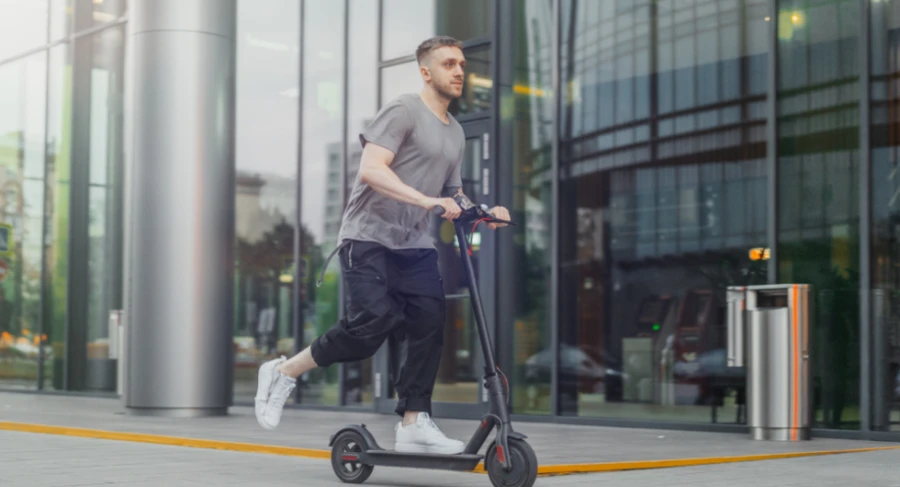You would have likely seen a surge in the demand for electric scooters across European cities. The last to join the electric revolution has been London. In fact, alongside cbd and personalised vitamins, micromobility has been one of the fastest growing markets globally. Why? People want to move quickly from A to B at minimal expense and maximum convenience. The emergence of e-scooters and e-bikes has exposed new opportunities for the masses of commuters to switch to these alternative means of transport. From bankers, tech workers, and students to health workers and OAPs – you name it – everyone is zipping around town on e-scooters and e-bikes to beat the traffic.
According to a recent Forbes article, Ed Sparks, a 31-year-old software engineer based near London, has fully embraced this new form of transportation. He told Forbes that ditching the Underground, which costs him £800 a year, for a £450 Segway Ninebot e-scooter, was one of the best decisions he’s ever made. Sparks wore a helmet, and even had a red flashing light on the back of his e-scooter. But unfortunately a police officer recently stopped him to remind him of the current outdated rules.
Thanks to an archaic law dating back to 1835, this futuristic, green mode of transport currently is prohibited in Britain. Zwings’ founder, Joe Lewin, recently had a meeting with the powers at be at Transport for London where he presented our business solutions proposal and discussed ways in which these new forms of transport can be formally integrated into our existing transport networks.
There has been a further meeting with a large number of major e-scooter sharing start ups with Michael Ellis, 51, the Head of Transport Innovation to discuss why the U.K. should change its centuries-old laws and make way for these futuristic new machines, which can be rented for a small fee via their smartphone apps.
The Future of Mobility Review that started back in March 2018 is now considering if and how we can formally regulate e-scooters. If and when regulation does come in Zwings, possibly halfway through 2020, we will remain on the front line to implement safe riding campaigns, ensure speed limitations using our geofencing software and will ensure helmets are used as much as possible.
In the interim, we are providing our electric bike solutions to our British clients who will be able to offer their employees or customers a car alternative for urban trips, whether they are for leisure or work purposes. Either way, our clients’ riders are benefiting from a boost to their wellbeing and a sustainable transport solution.
Stay tuned for further information!

